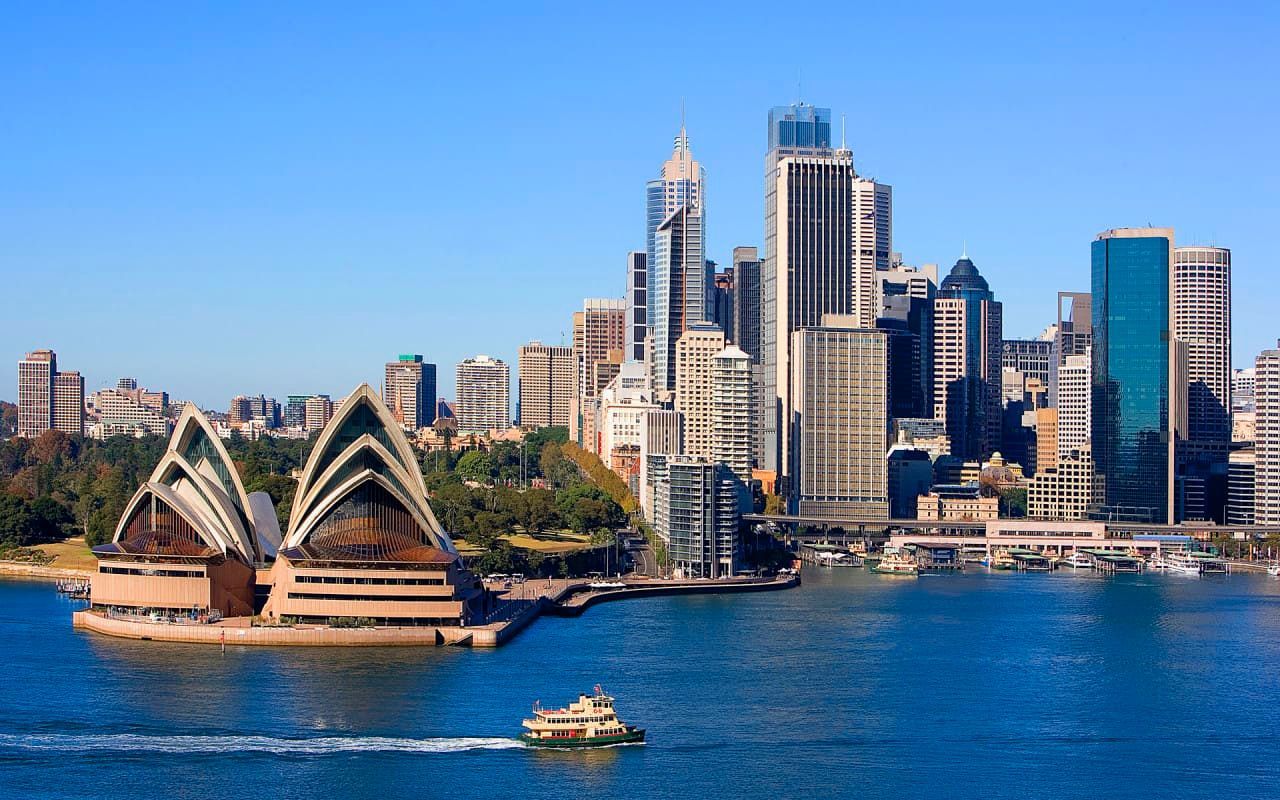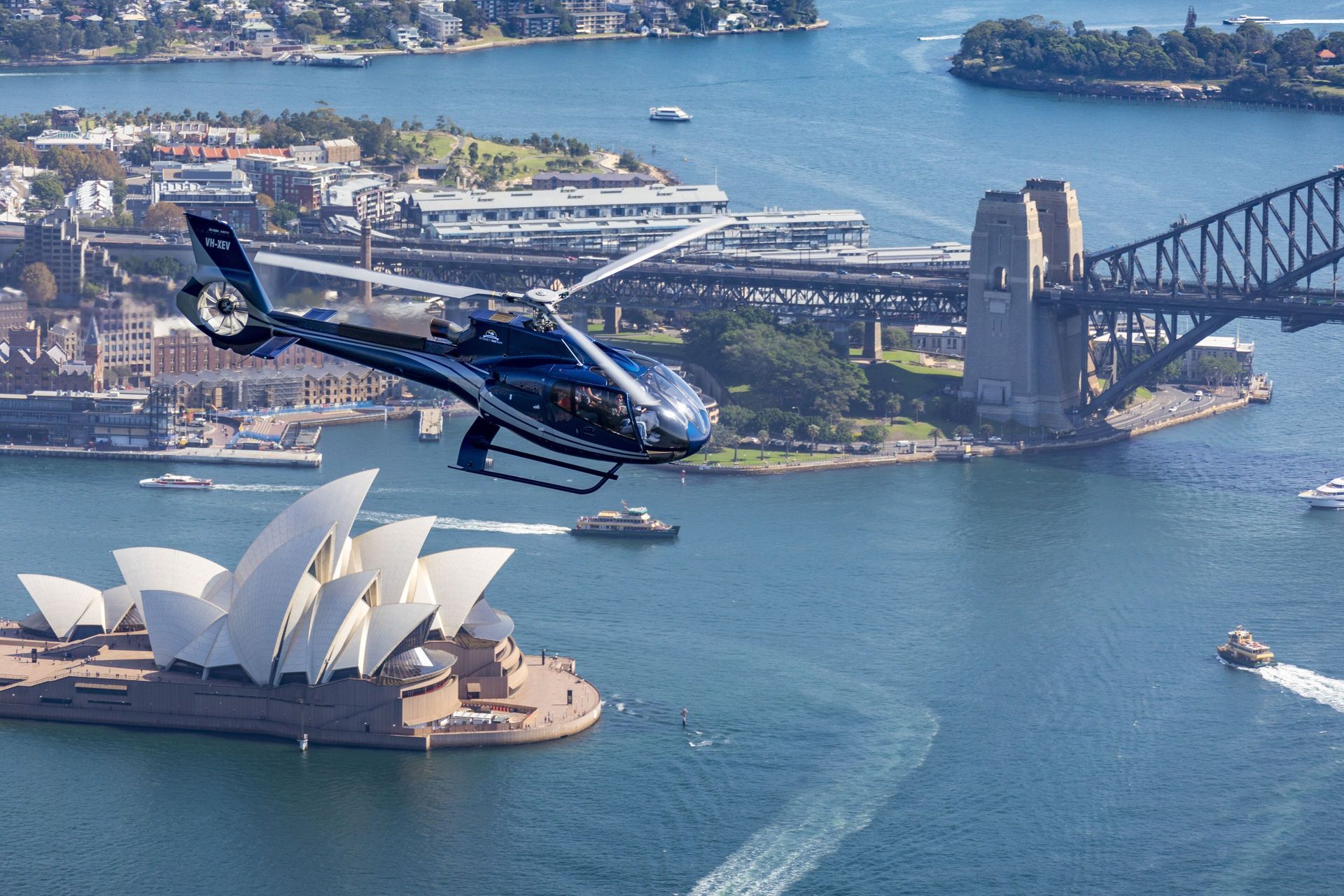To share
Embark on an unforgettable journey through Sydney's most picturesque paths. From coastal walks to lush forests,
these 10 scenic trails offer stunning vistas, diverse wildlife, and unforgettable experiences for nature lovers and adventure seekers alike.
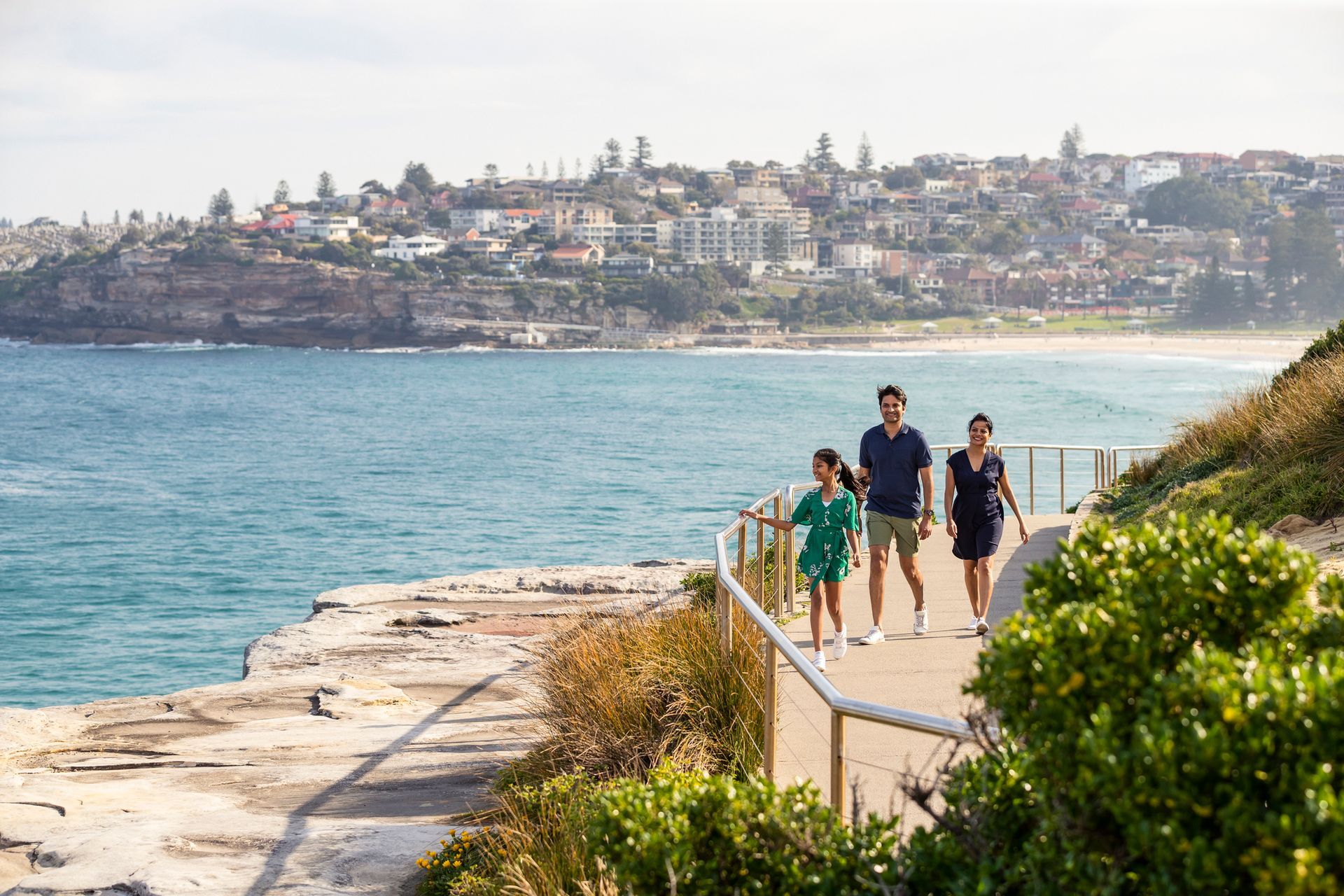
1. The Bondi to Coogee Coastal Walk
Breathtaking ocean views
The Bondi to Coogee Coastal Walk offers some of Sydney's most spectacular ocean vistas. This 6-kilometer trail hugs the coastline, providing uninterrupted views of the Pacific Ocean. As you traverse the path, you'll encounter dramatic clifftops, rocky outcrops, and expansive seascapes that showcase the raw beauty of Sydney's eastern suburbs.
- Tamarama Lookout: A prime spot for whale watching during migration season (May to November)
- Marks Park: Offers panoramic views of the coastline and is a popular location for the annual Sculpture by the Sea exhibition
- Clovelly Bowling Club: A unique vantage point overlooking the ocean, perfect for a refreshment break
Iconic beaches along the route
This coastal walk connects some of Sydney's most famous beaches, each with its own distinct character and charm.
- Bondi Beach: The starting point, known for its golden sands and vibrant atmosphere
- Tamarama Beach: A small, picturesque cove popular with surfers
- Bronte Beach: Family-friendly with a large grassy area and natural rock pool
- Clovelly Beach: A narrow, tranquil bay ideal for snorkeling
- Coogee Beach: The final destination, featuring calm waters and a relaxed vibe
Best times to visit and crowd management
To fully appreciate the Bondi to Coogee Coastal Walk, consider these tips for timing your visit:
- Early mornings: Ideal for avoiding crowds and catching spectacular sunrises
- Weekdays: Generally less busy than weekends
- Spring and autumn: Offer mild temperatures and clearer skies
Tip: If visiting during peak times, start early and be prepared for a slower pace due to higher foot traffic.
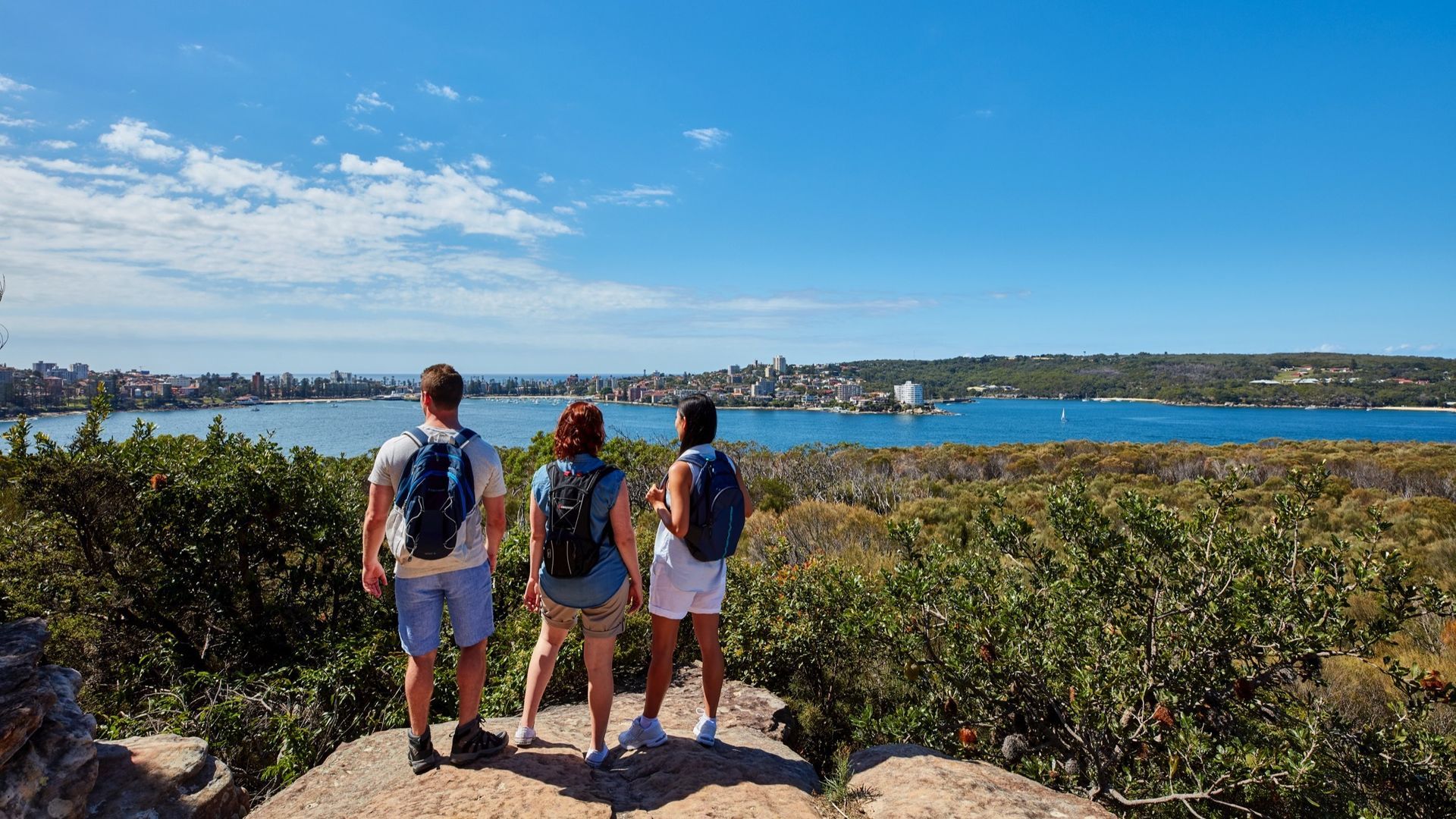
2. Manly to Spit Bridge Walk
Diverse landscapes and ecosystems
The Manly to Spit Bridge Walk, spanning 10 kilometers, showcases a rich variety of natural environments:
- Coastal bushland: Experience native flora and fauna in their natural habitat
- Sandy beaches: Explore secluded coves and pristine shorelines
- Harbor views: Enjoy panoramic vistas of Sydney Harbor and the city skyline
- Subtropical rainforest sections: Walk through lush, shaded areas with diverse plant species
This walk provides a unique opportunity to observe the interplay between different ecosystems within a relatively short distance.
Aboriginal rock engravings and heritage sites
The trail is rich in Indigenous Australian history, featuring several significant sites:
- Grotto Point: Home to well-preserved Aboriginal rock engravings depicting marine life
- Crater Cove: Contains the remains of historic beach shacks from the Great Depression era
- Dobroyd Head: Offers expansive views and is a site of cultural significance to the local Guringai people
These locations provide valuable insights into the area's long and diverse history, from ancient times to more recent settlers.
Transportation options and logistics
Accessing the Manly to Spit Bridge Walk is straightforward, with several transportation options available:
- Ferry: Take the scenic ferry ride from Circular Quay to Manly Wharf to start the walk
- Bus: Catch a bus to Spit Bridge if you prefer to walk in the opposite direction
- Parking: Limited parking is available at both ends of the trail
Note: The walk takes approximately 3-4 hours to complete. Ensure you carry sufficient water, sunscreen, and appropriate footwear.
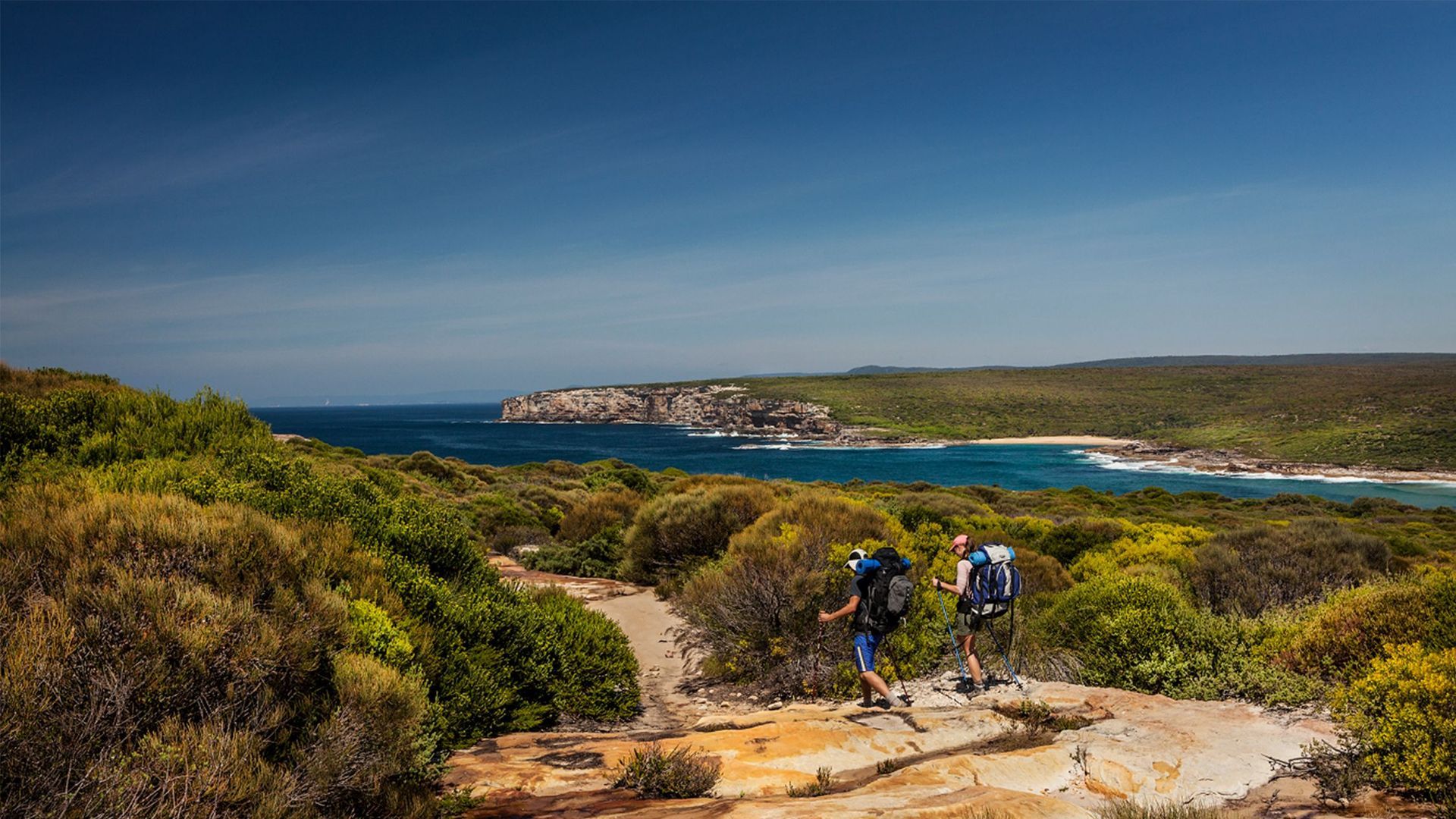
3. The Royal National Park Coast Track
Stunning cliffside vistas and secluded beaches
The Royal National Park Coast Track offers breathtaking views of the Pacific Ocean, with dramatic cliffs and pristine beaches. The 26-kilometer trail winds along the coastline, providing hikers with ever-changing scenery. Notable viewpoints include Garie Beach and Eagle Rock, where you can witness the raw beauty of nature's sculpting work on the sandstone cliffs.
Wildlife spotting opportunities
The diverse ecosystems along the Coast Track are home to a variety of wildlife. Visitors may encounter native birds such as sea eagles and honeyeaters, as well as mammals like wallabies and echidnas. During whale migration season (May to November), lucky hikers might spot humpback whales breaching offshore.
Camping and accommodation options
For those wishing to extend their adventure, the Royal National Park offers several camping options. North Era campground, located near Garie Beach, provides a rustic camping experience with basic facilities. Alternatively, the nearby towns of Bundeena and Otford offer a range of accommodation options for those preferring more comfort after a day on the trail.
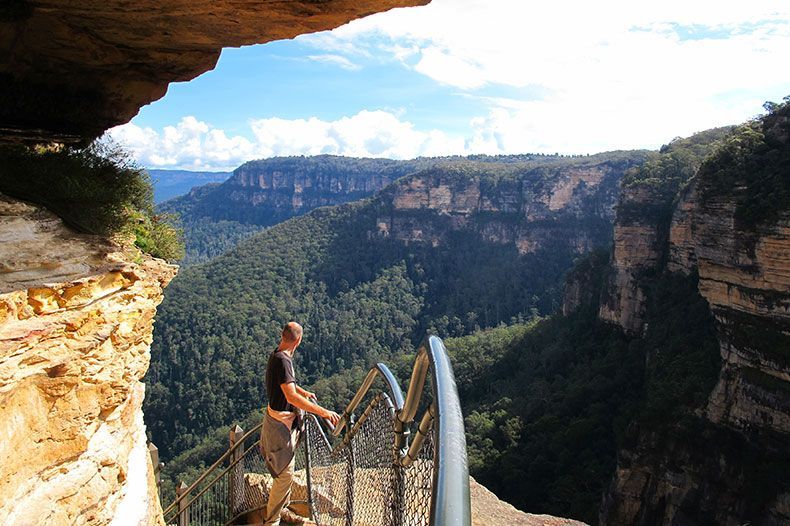
4. Blue Mountains National Park Trails
The Three Sisters and Echo Point lookout
The iconic Three Sisters rock formation is a must-see attraction in the Blue Mountains. The Echo Point lookout offers panoramic views of these weathered sandstone peaks and the vast Jamison Valley below. Several short walks from the lookout allow visitors to experience the area's natural beauty up close.
Wentworth Falls and Katoomba Cascades
Wentworth Falls is one of the Blue Mountains' most impressive waterfalls, with a 187-meter drop. The Wentworth Falls track offers various lookout points and a challenging descent to the base of the falls. Nearby, the Katoomba Cascades provide a gentler walking experience with a series of charming waterfalls and pools.
Safety precautions and trail difficulty levels
The Blue Mountains trails vary in difficulty, from easy walks suitable for families to challenging hikes for experienced bushwalkers. It's essential to check the trail grades before setting out and to be prepared with appropriate footwear, water, and sun protection. Weather conditions can change rapidly in the mountains, so visitors should check forecasts and be prepared to alter plans if necessary.
"Always inform someone of your hiking plans and expected return time when exploring the Blue Mountains trails."
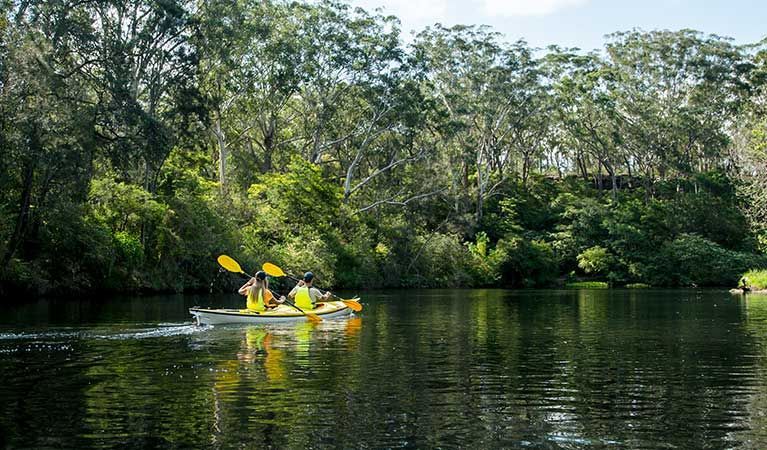
5. Lane Cove National Park River Walk
Serene bushland and river scenery
Lane Cove National Park offers a tranquil escape from the bustling city life. The River Walk, which meanders along the Lane Cove River, presents visitors with a picturesque blend of native bushland and gentle water views. The trail is well-maintained and suitable for walkers of various fitness levels.
As you traverse the path, you'll encounter a diverse range of native flora, including towering eucalyptus trees, vibrant wildflowers, and lush ferns. The river's calm waters reflect the surrounding greenery, creating a soothing atmosphere that's perfect for nature enthusiasts and photographers alike.
Picnic areas and recreational facilities
The National Park is equipped with excellent facilities to enhance your visit. Numerous picnic areas are scattered along the River Walk, offering ideal spots for a leisurely lunch or a family gathering. These areas are furnished with tables, benches, and barbecue facilities, allowing visitors to enjoy a meal amidst nature.
For those seeking more active pursuits, the park features well-maintained sports fields and playgrounds. These facilities make Lane Cove National Park a versatile destination, suitable for both relaxation and recreation.
Kayaking and other water activities
The Lane Cove River provides ample opportunities for water-based activities. Kayaking is particularly popular, offering a unique perspective of the park's natural beauty. Visitors can rent kayaks or canoes from the on-site boatshed and explore the tranquil waters at their own pace.
Fishing is another enjoyable activity in designated areas of the river. The park is home to various fish species, including bream and mullet, making it an attractive spot for both novice and experienced anglers.
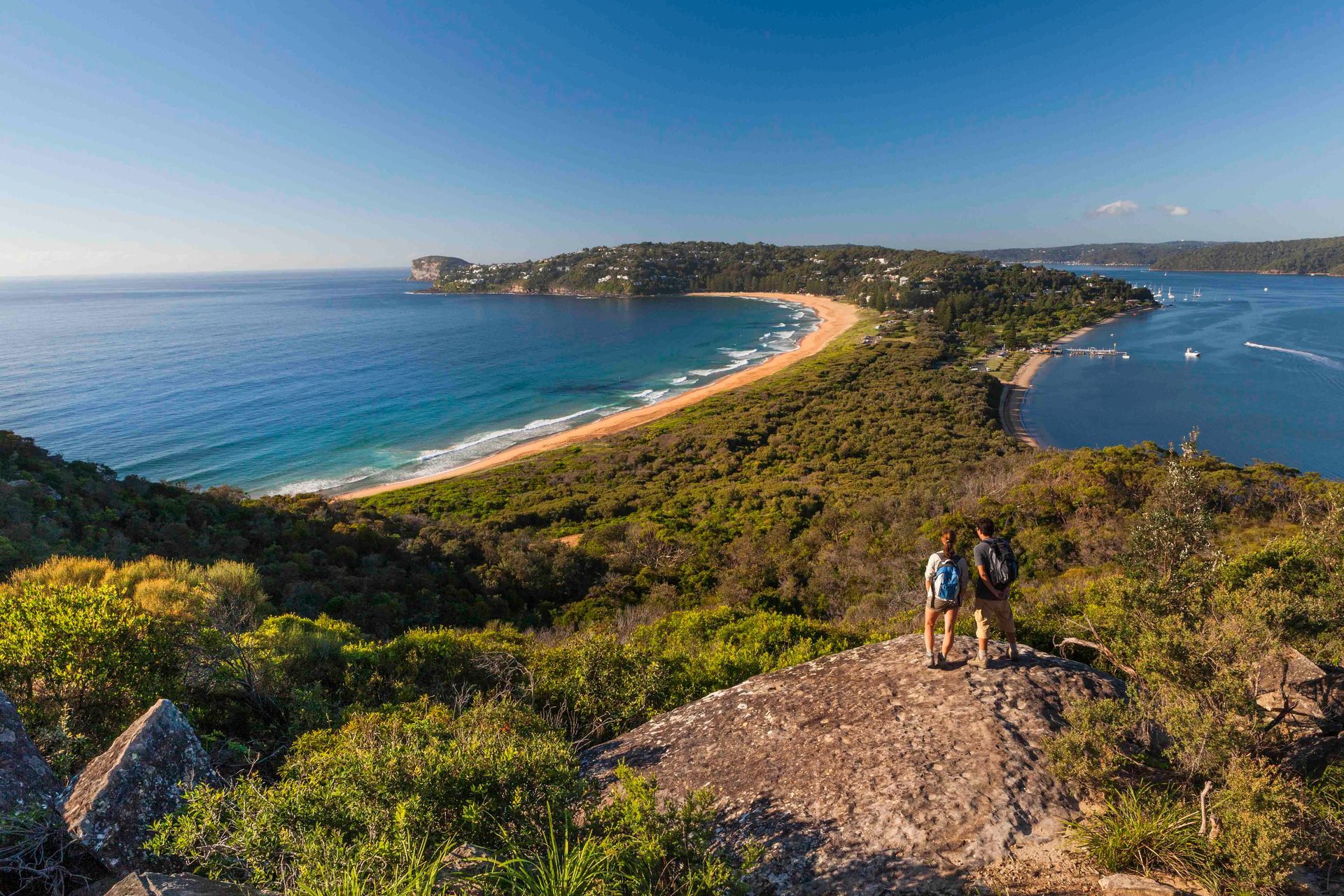
6. Ku-ring-gai Chase National Park Walks
Aboriginal heritage and rock art sites
Ku-ring-gai Chase National Park is not only a natural wonder but also a significant cultural site. The park is rich in Aboriginal heritage, with numerous rock art sites and ancient engravings scattered throughout the area. These artworks provide a fascinating glimpse into the lives and beliefs of the Guringai people, who have inhabited this land for thousands of years.
Visitors can explore these cultural treasures via guided tours or self-guided walks. The Red Hands Cave track, for instance, leads to a well-preserved Aboriginal rock art site featuring ochre hand paintings.
West Head lookout and Barrenjoey Lighthouse
One of the park's most spectacular features is the West Head lookout. This vantage point offers breathtaking panoramic views of Broken Bay, Pittwater, and the Central Coast. On a clear day, visitors can see as far as the Barrenjoey Lighthouse, perched on the northernmost tip of Sydney's Northern Beaches.
The walk to the Barrenjoey Lighthouse is another highlight of the park. This moderately challenging trail rewards hikers with stunning coastal views and the chance to explore the historic lighthouse, which dates back to 1881.
Flora and fauna unique to the area
Ku-ring-gai Chase National Park is a biodiversity hotspot, home to a wide array of plant and animal species, many of which are unique to the Sydney region. The park's diverse ecosystems range from heathland to rainforest, supporting an incredible variety of flora.
Wildlife enthusiasts will find plenty to observe, from colorful bird species like rainbow lorikeets and kookaburras to native mammals such as wallabies and echidnas. The park is also a crucial habitat for several endangered species, including the southern brown bandicoot and the powerful owl.
During spring, the park comes alive with wildflowers, creating a spectacular display of color. The vibrant waratahs, the state flower of New South Wales, are a particular highlight during this season.
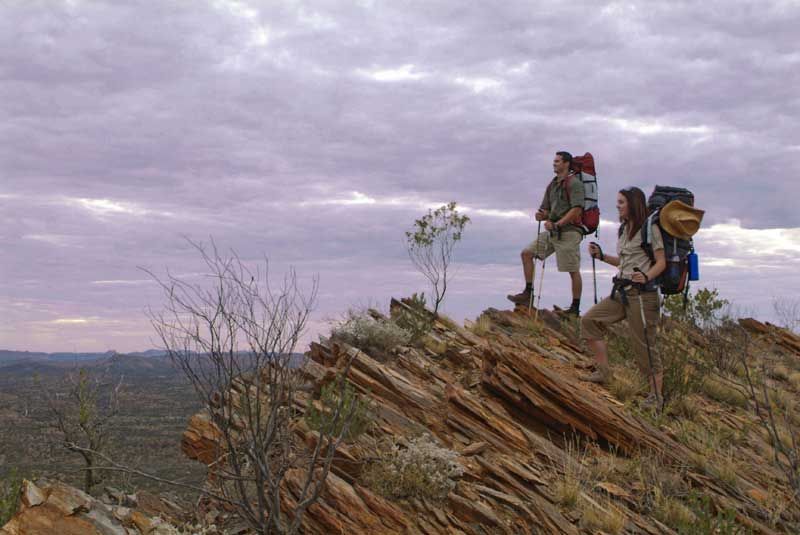
7. Sydney Harbour Bridge to South Head Walk
Iconic city skyline views
The Sydney Harbour Bridge to South Head Walk offers some of the most breathtaking views of Sydney's iconic skyline. As you traverse this scenic route, you'll be treated to panoramic vistas of the Sydney Opera House, the Harbour Bridge, and the city's gleaming skyscrapers. The walk provides numerous vantage points where you can pause to admire and photograph the stunning urban landscape against the backdrop of the sparkling harbor waters.
Historical landmarks and affluent neighborhoods
This trail takes you through some of Sydney's most historically significant areas and prestigious neighborhoods. You'll pass by notable landmarks such as Mrs. Macquarie's Chair, a sandstone bench hand-carved by convicts in 1810, and the Hornby Lighthouse at South Head, which has been guiding ships into the harbor since 1858. The walk also meanders through affluent suburbs like Vaucluse and Watsons Bay, where you can admire beautiful heritage homes and well-manicured gardens.
Ferry and public transport connections
One of the most convenient aspects of this walk is its excellent connectivity to public transportation. You can easily start or end your journey at various points along the trail using Sydney's efficient ferry service. For instance, you might choose to begin your walk at Circular Quay, taking in the harbor views as you make your way towards South Head. Alternatively, you could start at Watsons Bay and work your way back towards the city. Bus services are also available at multiple points along the route, providing flexibility for walkers who wish to customize their experience.
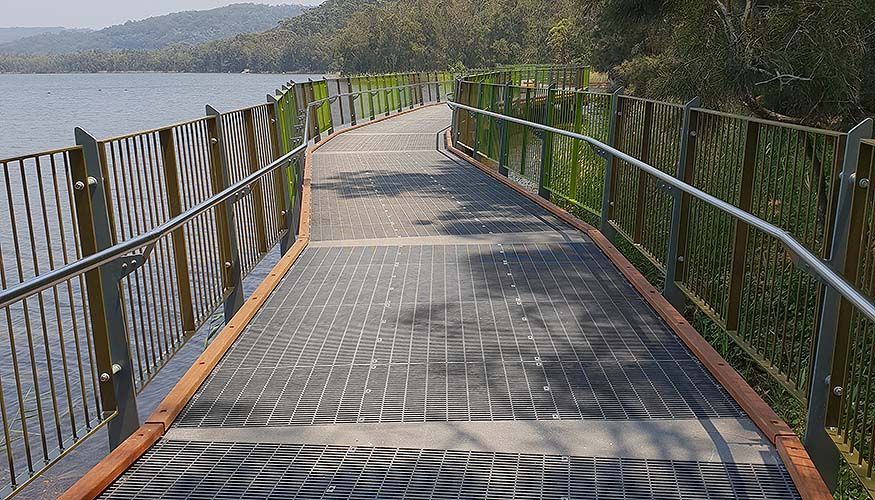
8. Narrabeen Lagoon Trail
Diverse wetland ecosystems
The Narrabeen Lagoon Trail showcases a rich tapestry of wetland ecosystems. As you explore this 8.4-kilometer circuit, you'll encounter a variety of habitats including saltmarsh, mangroves, and coastal rainforest. These diverse environments support a wide range of flora and fauna, making the trail a living classroom for nature enthusiasts. The lagoon itself is a critical ecosystem, serving as a nursery for many fish species and providing a haven for numerous aquatic plants.
Cycling and walking path options
This trail caters to both walkers and cyclists, with a well-maintained shared path that circles the lagoon. The flat, easy terrain makes it accessible for people of all fitness levels. For those who prefer a shorter walk, the trail can be divided into smaller sections, each offering its own unique views and experiences. Cyclists will appreciate the smooth surface and minimal elevation changes, making it an ideal route for a leisurely ride or a more vigorous workout.
Birdwatching hotspots
Narrabeen Lagoon is renowned among birdwatchers as one of Sydney's premier locations for observing both resident and migratory birds. The trail features several purpose-built bird hides and viewing platforms, allowing visitors to observe the avian inhabitants without disturbing them. You might spot species such as the White-faced Heron, the Australian Pelican, or even the elusive Australasian Bittern. The best times for birdwatching are typically early morning or late afternoon when bird activity is at its peak.
"The Narrabeen Lagoon Trail offers a unique opportunity to experience Sydney's natural beauty and biodiversity without venturing far from the city center. It's a testament to the careful balance between urban development and environmental conservation."
- Consider bringing binoculars to enhance your birdwatching experience.
- Remember to respect the environment by staying on designated paths and not feeding the wildlife.
- Check the weather forecast before setting out, as some parts of the trail may be affected by high tides or heavy rainfall.
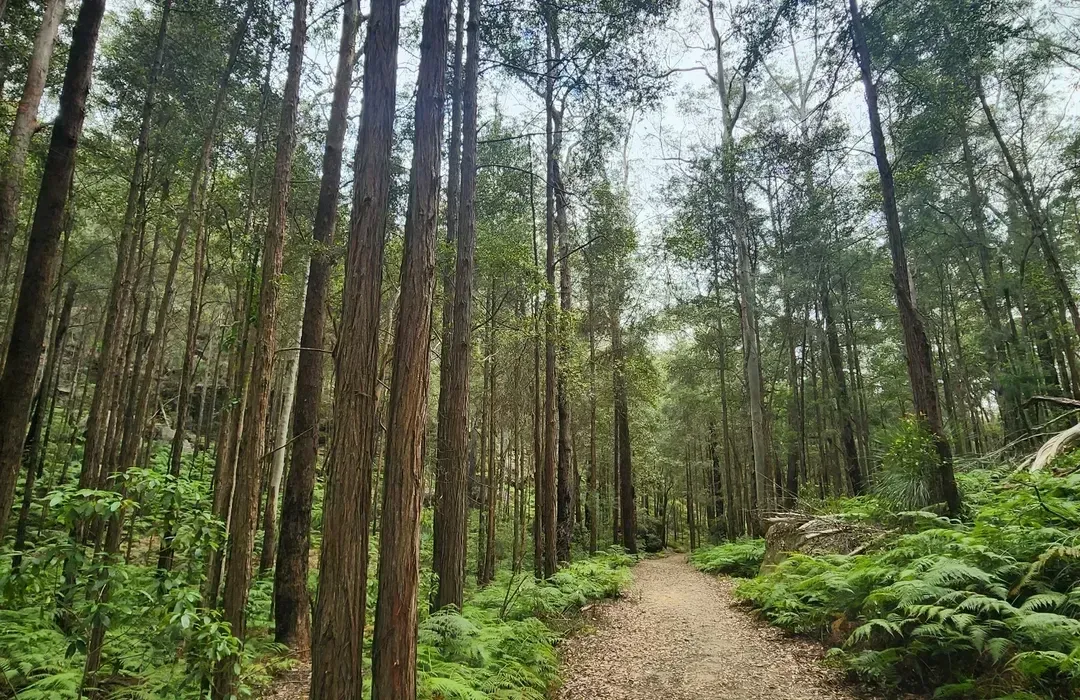
9. Berowra Valley National Park Trails
Secluded creeks and waterfalls
Berowra Valley National Park is a treasure trove of natural beauty, with its network of trails leading to hidden creeks and waterfalls. The Lyrebird Gully Track is particularly noteworthy, offering hikers a chance to discover secluded waterfalls cascading over moss-covered rocks. The sound of rushing water and the sight of sunlight filtering through the dense canopy create a serene atmosphere that's perfect for nature enthusiasts and photographers alike.
Challenging hiking routes for experienced trekkers
For those seeking a more demanding adventure, the Great North Walk section within Berowra Valley presents a formidable challenge. This 25-kilometer stretch from Berowra to Cowan tests hikers' endurance with its steep inclines and rugged terrain. The reward for this effort is breathtaking views of the Berowra Creek Valley and a sense of accomplishment that comes with conquering a difficult trail.
Native plant species and wildflower displays
The park is home to a diverse array of native plant species, making it a botanist's paradise. During spring, the trails come alive with vibrant wildflower displays. The Stringybark Ridge Trail is particularly known for its beautiful showcases of native flora, including waratahs, flannel flowers, and various species of eucalyptus. These natural gardens provide a colorful backdrop for hikers and serve as important habitats for local wildlife.
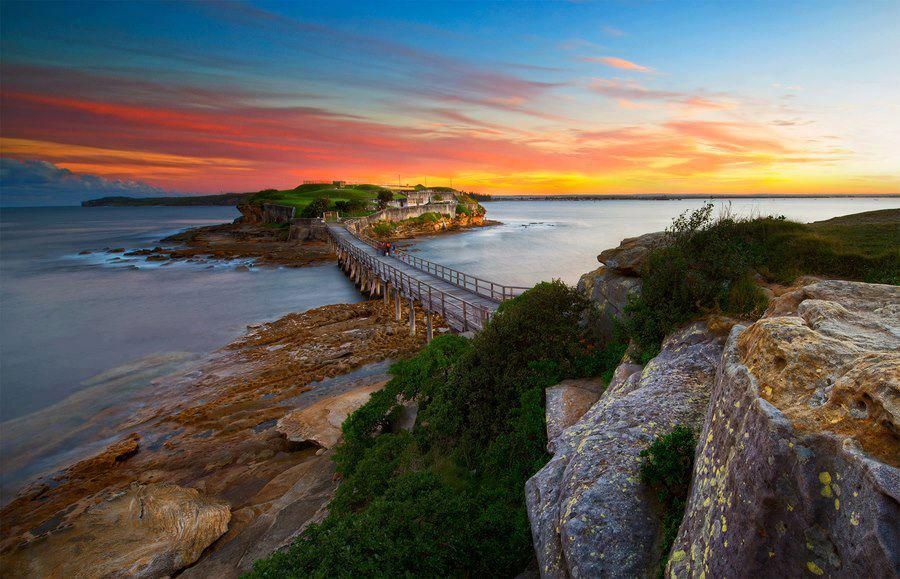
10. Kamay Botany Bay National Park Walks
Captain Cook's landing site and historical significance
Kamay Botany Bay National Park holds immense historical significance as the site of Captain James Cook's landing in 1770. The Burrawang walk takes visitors on a journey through time, featuring interpretive signs that detail the first encounter between European settlers and the local Gweagal people. This trail offers a unique blend of natural beauty and cultural heritage, making it a must-visit for history buffs and nature lovers alike.
Whale watching opportunities (seasonal)
From May to November, the coastal walks in Kamay Botany Bay National Park transform into prime whale-watching spots. The Cape Solander lookout, in particular, offers an excellent vantage point to observe humpback whales during their annual migration. This seasonal spectacle adds an extra layer of excitement to the park's already impressive list of attractions.
Cape Baily Lighthouse and coastal scenery
The walk to Cape Baily Lighthouse is a highlight of the park, offering stunning coastal views along the way. The trail winds through coastal heath and sand dunes, providing a diverse range of landscapes to explore. The lighthouse itself, perched on the cliff's edge, serves as a picturesque landmark and a testament to the area's maritime history.
Summary
Sydney's hidden gems offer a diverse range of hiking experiences, from challenging treks through dense bushland to leisurely coastal walks rich in history and natural beauty. These trails showcase the best of Sydney's natural landscapes, providing opportunities for adventure, education, and relaxation. Whether you're a seasoned hiker or a casual nature enthusiast, these scenic trails are sure to leave a lasting impression.
Frequently Asked Questions
What are the best seasons for hiking in Sydney?
Spring (September to November) and autumn (March to May) are generally considered the best seasons for hiking in Sydney. During these months, the weather is mild, and rainfall is typically lower. Spring offers the added bonus of wildflower displays, while autumn provides comfortable temperatures and clear skies ideal for photography.
Are these trails suitable for families with children?
Many of the trails mentioned are suitable for families with children, particularly those in Kamay Botany Bay National Park. However, some routes in Berowra Valley National Park may be too challenging for young children or inexperienced hikers. It's always best to research the specific trail difficulty and length before embarking on a family hike.
What essential items should I pack for these walks?
When hiking these trails, it's important to pack:
- Plenty of water
- Snacks or a packed lunch
- Sunscreen and a hat
- Insect repellent
- A first aid kit
- A map or GPS device
- Comfortable, sturdy walking shoes
- Weather-appropriate clothing (including a raincoat)
Are there guided tours available for these trails?
Yes, there are guided tours available for many of these trails. National Parks and Wildlife Service NSW offers guided walks in both Berowra Valley and Kamay Botany Bay National Parks. These tours can provide valuable insights into the local flora, fauna, and history of the areas.
How can I practice responsible tourism on these trails?
To practice responsible tourism:
- Stay on marked trails to protect vegetation and wildlife habitats
- Take all rubbish with you, including biodegradable items
- Respect wildlife by observing from a distance and not feeding animals
- Follow fire safety guidelines and regulations
- Be mindful of noise levels to avoid disturbing wildlife and other hikers
- Use eco-friendly sunscreens and insect repellents to minimize impact on the environment

